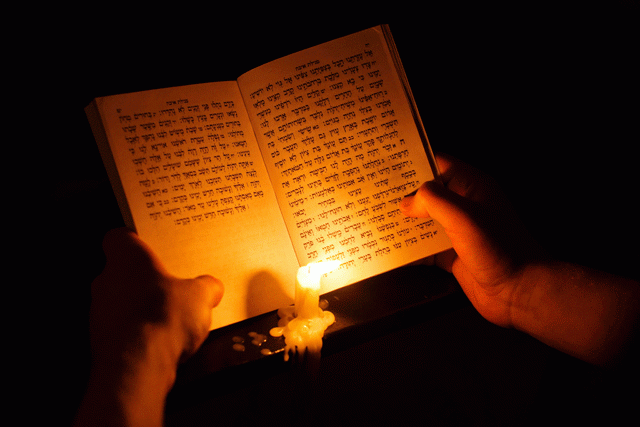The prophet Jeremiah spent years warning his people that they repent and stop insisting that the Temple would protect them. To his chagrin, the Jews honored the Temple more in spectacle than in spirit.
But, the Jews ignored him, even imprisoned him, and to his unbearable agony, he was proven right. The Temple was destroyed, the people ravaged, the nation dispersed and he was the witness.
 The book of Eicha is timeless. Although it was composed in the wake of the end of the first Temple era, the Sages of the Midrash find it full of allusions to the destruction of the second Temple, over 500 years later. This is not at all an anachronism, because Jewish history is a continuum. Just as we live by the torah that was given over 33 centuries ago, so we are molded by the experiences of our forbears and the historical epochs they created.
The book of Eicha is timeless. Although it was composed in the wake of the end of the first Temple era, the Sages of the Midrash find it full of allusions to the destruction of the second Temple, over 500 years later. This is not at all an anachronism, because Jewish history is a continuum. Just as we live by the torah that was given over 33 centuries ago, so we are molded by the experiences of our forbears and the historical epochs they created.
Jeremiah weeps and we weep with him, because – if we are thoughtful and perceptive – we can see all of Jewish history in the dirges of Eichah. This is the challenge of Tisha B’av. Can we realize that this is not merely a day of tears, but of challenge and hope?
The book of Eichah calls Tisha B’av “a day of Jewish rendezvous with G-d” and we don’t recite Tachanun because it has elements of a festival.
Rendezvous with G-d? Festival? On a day of destruction and suffering? Yes, because Tisha B’av proves that G-d is not indifferent to Jewish conduct. We matter to him. And since we do, we know that He awaits our repentance and that there will be a third Temple, an eternal one.
The Sages say that the Messiah will be born on Tisha B’av. Let us read Eicha with the prayerful hope that he has already been born and that this day next year will be a day of joy.
Hashivenu Hashem Eilecha VenaShuva – Chadesh Yameinu KeKedem
Bring us back to you Hashem, and we shall return, renew our days as of old
